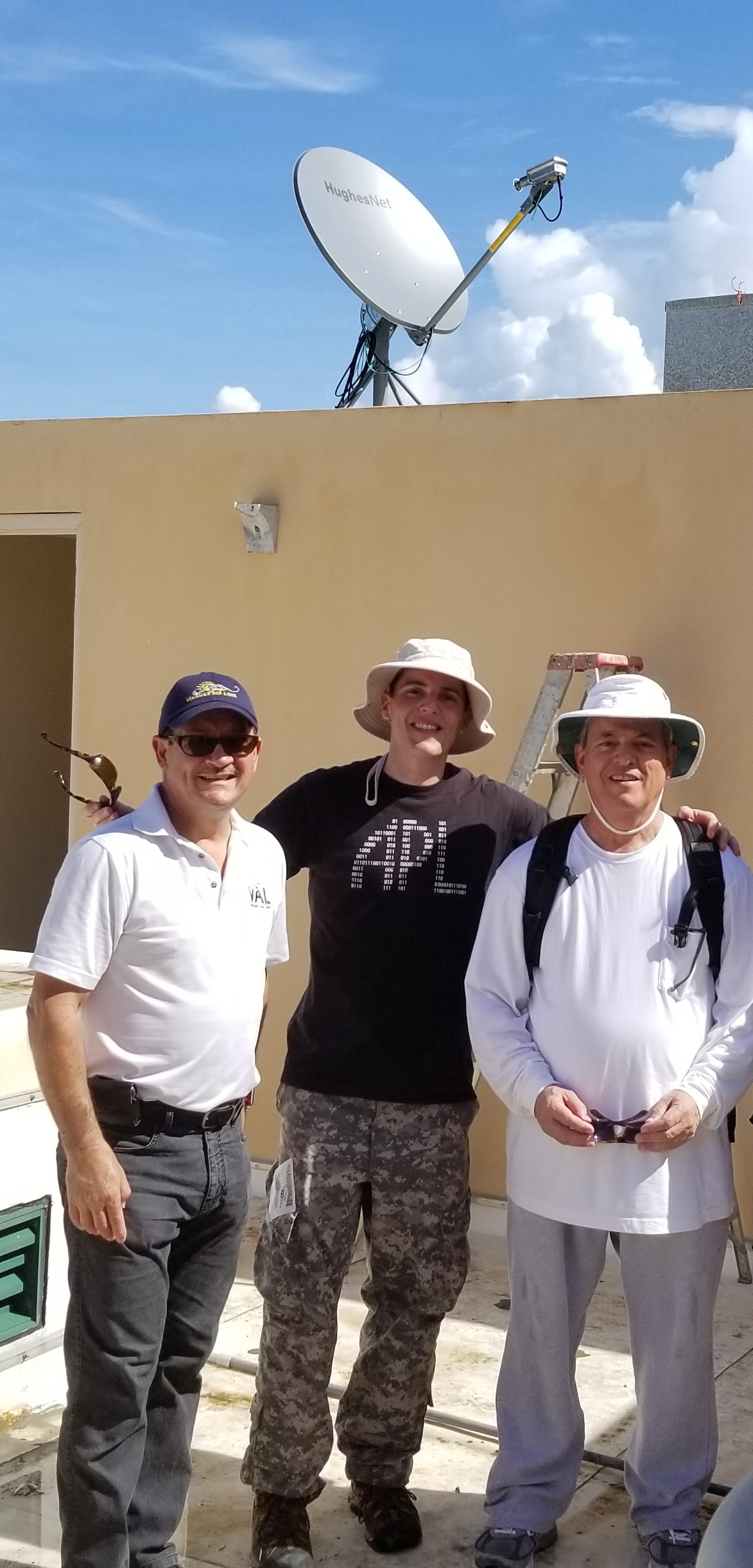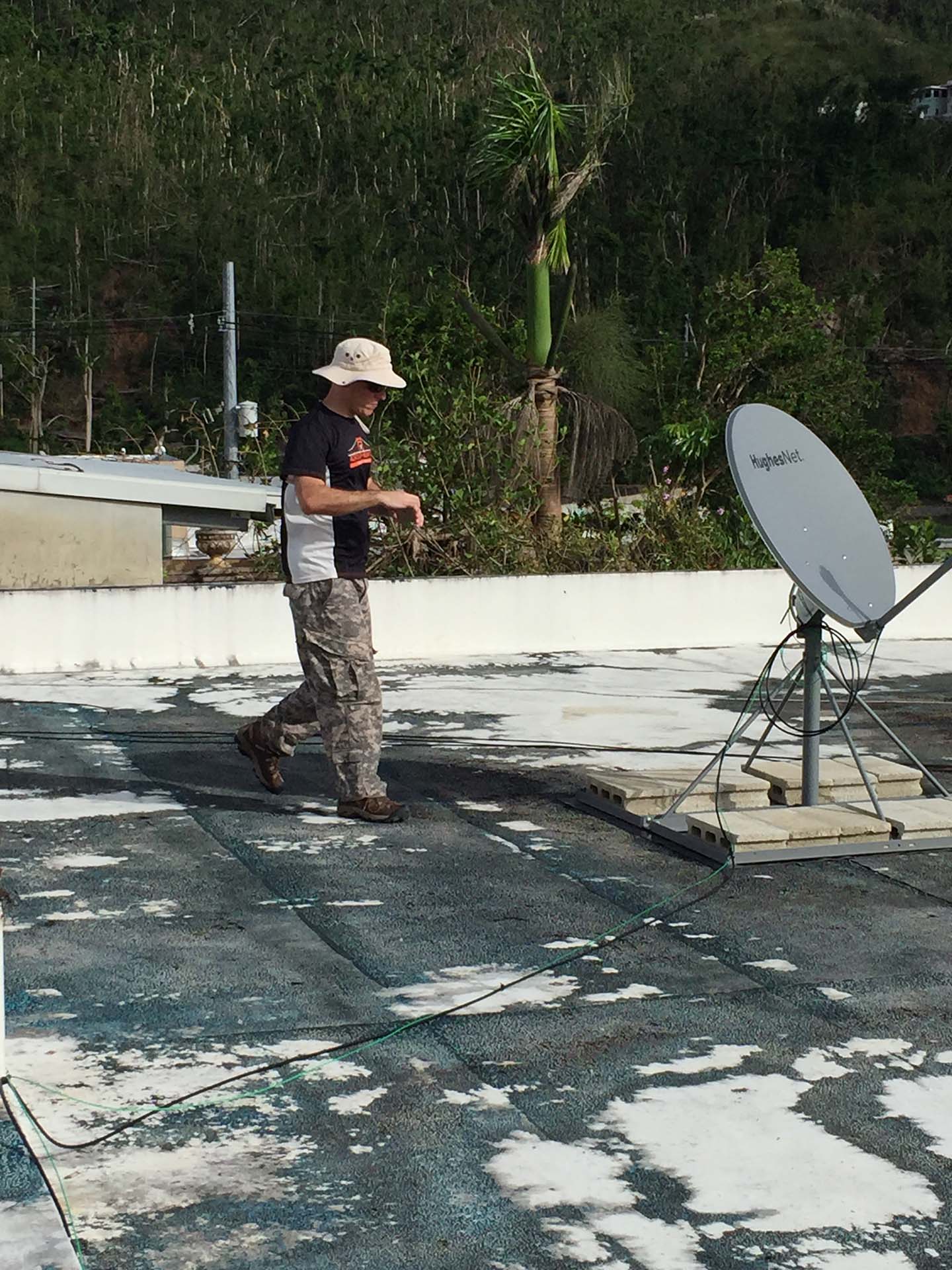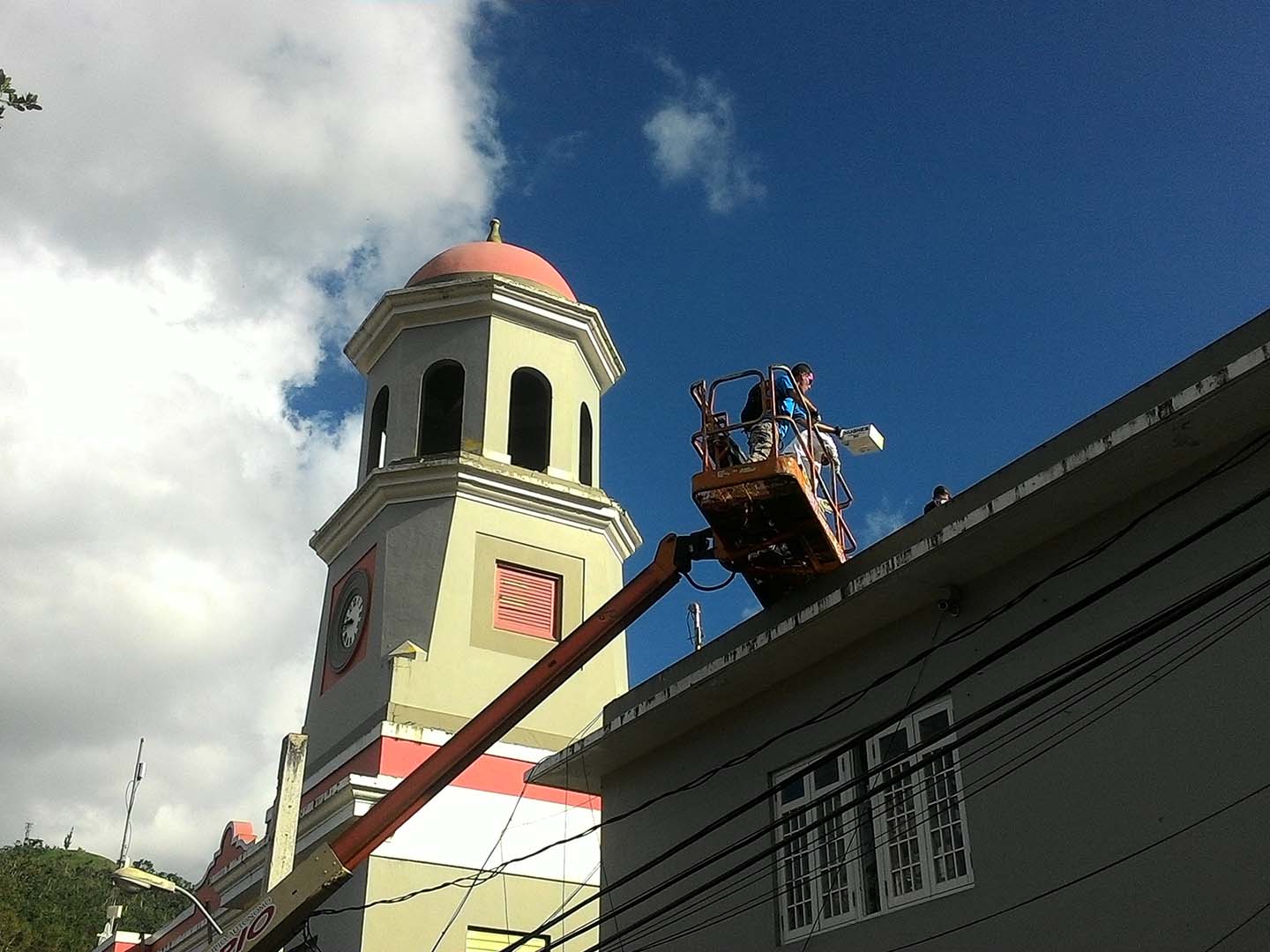Press Release
APL Communications Engineer Helps Reconnect Puerto Rico to the Internet
Wed, 12/13/2017 - 09:50
Margaret Brown
Naim Merheb, a satellite communication systems engineer at the Johns Hopkins University Applied Physics Laboratory in Laurel, Maryland, recently led a volunteer effort to reconnect several Puerto Rican communities to the internet in the wake of Hurricane Maria, even helping to restore 911 dispatch for ambulances in one rural area.
When the category-5 storm slammed Puerto Rico directly on Sept. 20, it devastated the island and cut off communications to most areas. Merheb, a native of Puerto Rico, quickly heard from family and friends about the incredible damage from the storm and knew it would have a continuing impact on residents who would have to rebuild an economy with no infrastructure.
A graduate of Polytechnic University of Puerto Rico and the Johns Hopkins Engineering for Professionals program, Merheb has worked at APL since 1999 and specializes in communication and network systems, particularly those relying on satellites. That know-how enabled him to contact several satellite communication companies with a proposal to establish “hotspots” in hard-hit and hard-to-reach communities.
“We all saw on television how folks were pulling over along the highways, having driven miles to find a small spot with a cellphone signal. So, I wanted to try to take the signal to them instead,” Merheb said. “I was looking at how I could apply my professional knowledge to contribute in some capacity.”
One company agreed to provide him the equipment, service and support that he requested. With the help of family and friends, several other collaborating organizations and APL colleagues (including other members of APL’s Hispanic Employee Resource Group), he began establishing free internet hotspots in areas that had been cut off from communications.
From Nov. 11 to 22, Merheb and his collaborators set up free internet in eight municipalities: Comerío, Culebra, Luquillo, Morovis, Orocovis, Utuado, Vieques and Yabucoa. He said that the group could only address about one site per day, since many communities are still difficult to reach due to terrible road conditions.


